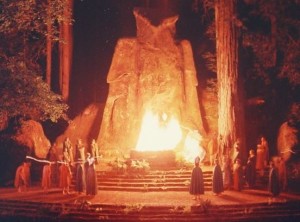 by Fr. Patrick Henry Reardon
by Fr. Patrick Henry Reardon
If you answer this question like most modern Christians, you’re probably wrong.
Because the Old Testament records the historical pedagogy by which God prepared His People for the arrival of the Savior, it is hardly surprising that it says a great deal about what human beings were to be saved from—that is, sin. The Hebrew Bible conveys quite a bit about God’s attitude toward sin. This was a necessary part of the divine tutelage revealed in Salvation History.
It may be a particular point of a modern reader’s discomfort with the Old Testament that it contains so much bloodshed, violence, and, even, genocide. Many sincere Christians, it appears, deplore that aspect of the Hebrew Bible. Alas, sometimes the resistance of Christians to the Old Testament borders on Marcionism. The books of Joshua and Judges come in for special criticism in this respect.
For this reason it is important to reflect that the God of history gradually revealed the truth to the human race. He did it in stages, according to man’s historically conditioned ability to receive the revelation. God began by teaching the basics—the grammar of the historical process. Chief among the elements of Old Testament pedagogy is the grammar of sin.
Among the first things mankind had to learn was God’s enmity toward sin and His inveterate disposition to show a harsh side of Himself when confronted with it. God, if He truly loved man, could not permit man to remain in doubt on the point. So He rained fire and brimstone on the Cities of the Plain because of their sins. He commanded Israel to slaughter the nations of Canaan in order to teach the human race about the seriousness of idolatry. If death entered into the world through sin, God was obliged, so to speak, to demonstrate, in unmistakable ways, that sin ends in destruction. He commanded this slaughter of the Canaanites for the same reason He destroyed the Egyptian firstborn and Pharaoh’s army at the Red Sea: God is very angry at sin.
 This truth is essential to the ABC’s of revelation. God hates evil. He hates it so much that He commands evil-doers to be destroyed. That is the lesson on many pages of Joshua and Judges, nor could Mankind afford to skip school on the days that lesson was taught.
This truth is essential to the ABC’s of revelation. God hates evil. He hates it so much that He commands evil-doers to be destroyed. That is the lesson on many pages of Joshua and Judges, nor could Mankind afford to skip school on the days that lesson was taught.
One cannot understand the first thing about the mercy of God until he has come to grips with the anger of God. God’s yes makes no sense until we have heard God’s no. One should not imagine he understands the Gospel of John until he has understood the Book of Joshua.
Let me venture a word of caution here: I fear that these questioning Christians, those bothered by the books of Joshua and Judges, do not hate evil. They need to question themselves on the point. Perhaps they do not believe that sin leads to destruction/ Why else should they complain when, on some of the more gruesome pages of Holy Scripture, evil is punished?
The Israelites were not less intelligent than other ancient peoples, so it is no slur on them to observe that they appear to have been slow learners. The biblical prophets, along with the Psalmist, mention this fact from time to time, uniformly to deplore it. After what befell Sodom, after the way Egypt was plagued, after the manner in which God visited the sins of the Amorites and the transgressions of the Philistines, one might think, surely, that Israel would get the message. But no, even after the fall and deportation of the Samaritans, the children of Judah continued in their sins and abandoned the responsibilities of the Covenant. Finally, with immense reluctance, according to Jeremiah, God condemned them to exile in Babylon.
And we, have we yet taken to heart the biblical grammar of sin? Is it not a fact that the New Testament itself warns,
“it is a fearful thing to fall into the hand of the living God”?
 Anyway, it is distressing to hear Christians deplore the punishment allotted to the Canaanites but not deplore the idolatry of the Canaanites.
Anyway, it is distressing to hear Christians deplore the punishment allotted to the Canaanites but not deplore the idolatry of the Canaanites.
Do we really imagine genocide is more serious than idolatry?
This punishment of sin, of which God made ancient Israel the instrument, was essential to the historical process displayed in the Bible, and that punishment was appropriate to the time.
There is an ongoing historical and pedagogical process involved in Salvation History. At certain crucial times, ancient Israel was obliged to learn—for the benefit of all of us—some difficult but necessary lessons, lessons appropriate to their age and place in history. To lament that there is bloodshed, violence, and genocide in the Old Testament is something on the order of complaining that infants soil their diapers.
